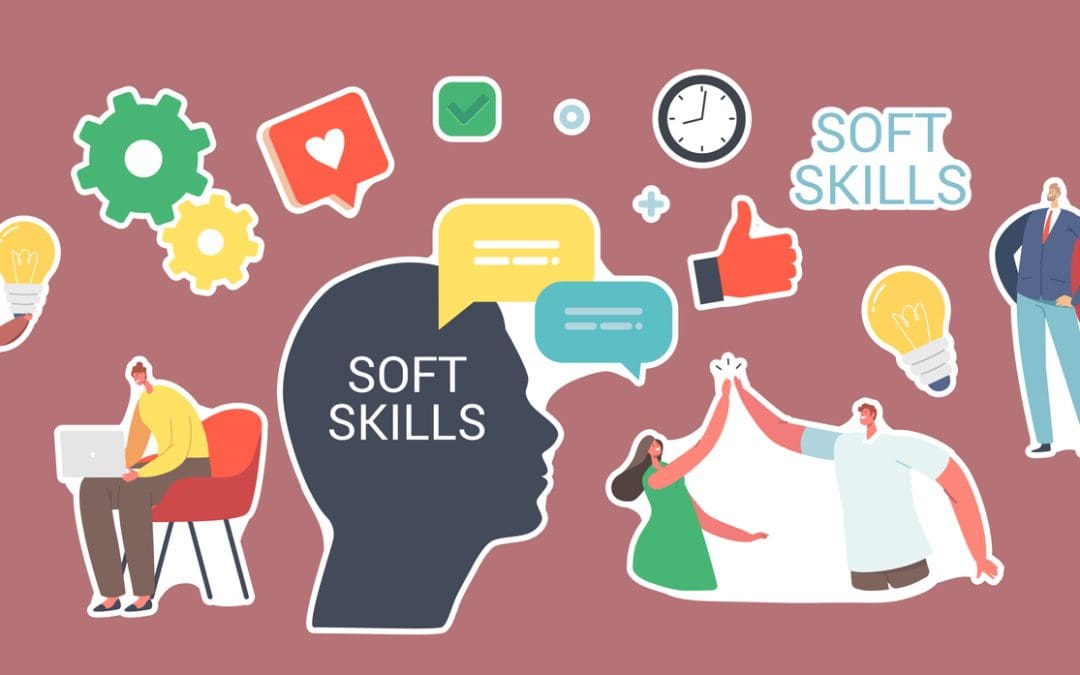
Image Source: Google
Success in today's workplace goes beyond technical skills and knowledge. Employers are increasingly recognizing the importance of soft skills in an individual's ability to thrive in their careers. Soft skills, also known as interpersonal skills or people skills, are the non-technical abilities that enable us to effectively interact with others. These skills are essential for building relationships, communicating effectively, and working well within a team.
While technical skills may get your foot in the door, it is often the soft skills that will help you advance in your career. Employers value soft skills because they are harder to teach than technical skills and are seen as a strong indicator of how well an individual will perform in a professional setting. Soft skills can encompass a wide range of abilities, including communication, collaboration, problem-solving, adaptability, leadership, emotional intelligence, and time management. Developing these skills can set you apart from your peers and make you a valuable asset to any organization.
One of the key components of soft skills development is self-awareness. Understanding your strengths and weaknesses, as well as how you are perceived by others, is essential for personal growth and improvement. Take the time to reflect on your communication style, how you handle conflict, and how you work in a team setting. Seeking feedback from colleagues, mentors, or supervisors can also provide valuable insights into areas where you can improve.
Effective communication is another critical soft skill that can make or break your success in the workplace. Being able to clearly express your ideas, listen actively to others, and tailor your message to different audiences is essential for building strong relationships and collaborating effectively. Practice active listening, ask clarifying questions, and be mindful of your body language to ensure you are communicating in a clear and impactful way.
Collaboration is another important soft skill that is highly valued by employers. The ability to work well with others, contribute to a team, and resolve conflicts in a productive manner is essential for success in today's team-oriented work environments. Foster a spirit of cooperation and mutual respect, be open to new ideas and perspectives, and take on leadership roles when appropriate to demonstrate your ability to work effectively with others.
Problem-solving and critical thinking are also crucial soft skills that can help you navigate challenges and find innovative solutions in the workplace. Being able to analyze a situation, think creatively, and make informed decisions under pressure are valuable skills that can set you apart from your peers. Practice thinking outside the box, seek input from others, and be willing to take calculated risks to develop your problem-solving abilities.
Adaptability is another key soft skill that is highly valued in today's rapidly changing work environment. The ability to be flexible, resilient, and open to new ideas and ways of working is essential for success in a dynamic and fast-paced world. Embrace change, be willing to learn new skills, and demonstrate a positive attitude in the face of challenges to show your adaptability to employers.
Leadership skills are also highly sought after by employers, regardless of your position within an organization. The ability to inspire and motivate others, take initiative, and lead by example are all important aspects of effective leadership. Look for opportunities to take on leadership roles, mentor others, and demonstrate your ability to influence and inspire those around you.
Emotional intelligence, or the ability to understand and manage your own emotions as well as those of others, is another critical soft skill that can impact your success in the workplace. Being able to empathize with others, build strong relationships, and navigate interpersonal dynamics positively and constructively is essential for effective communication and collaboration. Practice self-awareness, empathy, and emotional regulation to develop your emotional intelligence and build strong relationships with colleagues and clients.
Time management is a final soft skill that is essential for success in today's fast-paced and demanding work environments. Being able to prioritize tasks, manage your workload effectively, and meet deadlines is crucial for productivity and success. Develop a system for organizing your tasks, set realistic goals, and learn to say no to tasks that do not align with your priorities to improve your time management skills.
In conclusion, soft skills are essential for success in today's workplace and can set you apart from your peers in a competitive job market. By developing your self-awareness, communication, collaboration, problem-solving, adaptability, leadership, emotional intelligence, and time management skills, you can unlock your full potential and thrive in your career. Invest in your soft skills development and watch as your success and opportunities for growth multiply.
